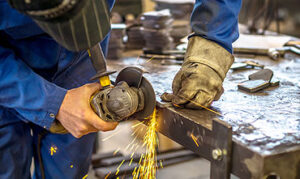Everything You Need To Know About Shipbuilding And Metal Fabrication

Shipbuilding and metal fabrication represent a convergence of art and science, a marriage of industrial prowess and innovation that has been instrumental in shaping the maritime world. This information serves as a comprehensive guide, providing a thorough understanding of shipbuilding and its intricate connection with metal fabrication company. From the materials used to the cutting-edge techniques employed, we delve into the essence of these industries.
The foundations of shipbuilding:
Shipbuilding is an age-old craft, dating back to ancient civilizations. The process involves constructing ships for various purposes, from cargo vessels to naval warships and luxury yachts. The choice of materials is crucial, and metal fabrication plays a pivotal role in the structural integrity of the vessel.
The importance of metal fabrication:
Metal fabrication is the backbone of ship construction. Shipbuilders rely on metals such as steel and aluminum for their strength, durability, and corrosion resistance. Skilled fabricators use precision machining, welding, and assembly to create the intricate components that form the vessel’s hull, superstructure, and engine components.
Design and engineering:
Ship design is a multidisciplinary endeavor, merging aesthetics with engineering principles. Architects, naval engineers, and designers collaborate to create the blueprint for the ship. Metal fabricators then translate these designs into reality, shaping and assembling the parts that make up the vessel.
Welding and assembly:
Welding is an essential step in ship construction. Fabricators expertly join metal components to create the ship’s structure. The quality of welding determines the vessel’s strength and longevity. Welders must manage heat, avoid distortion, and ensure consistent quality throughout the ship.
Innovation and sustainability:
Shipbuilding is not immune to the call for sustainability. Innovative solutions are being explored to reduce the environmental impact of ship construction, from eco-friendly materials to energy-efficient designs. This industry strives to align with global efforts to reduce carbon emissions and protect our oceans.
The future of shipbuilding:
Advancements in technology are transforming shipbuilding and metal fabrication. The integration of digital design tools, automation, and new materials are shaping the future of ship construction. Additionally, an increased focus on sustainable practices will continue to drive innovation in the industry.
Shipbuilding and metal fabrication are complex, interwoven industries that create the maritime vessels that sail our seas. From the design and engineering phase to precision machining, welding, and quality control, these industries are as demanding as they are rewarding.




